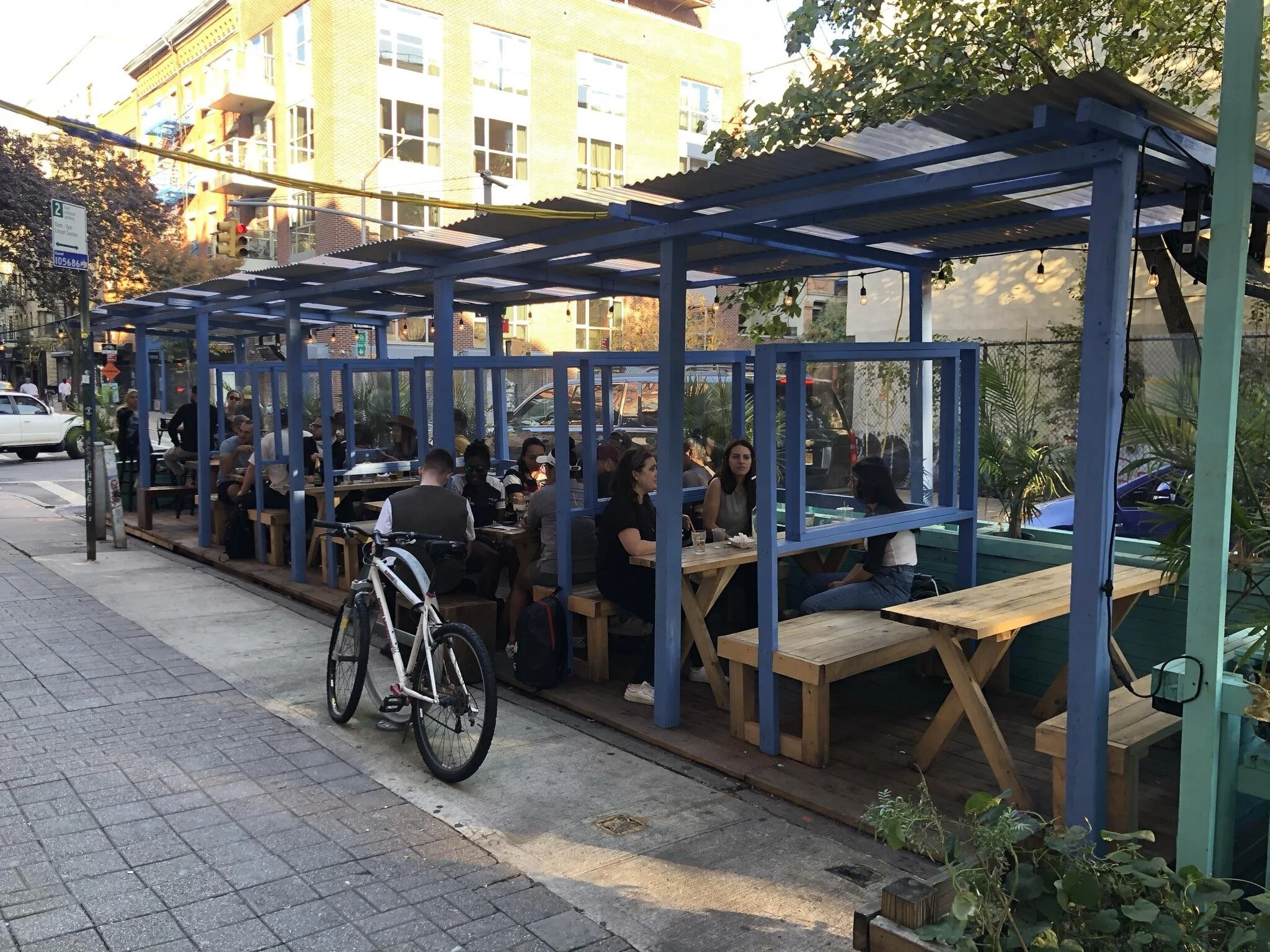After two years into the Covid-19 pandemic, how has our conception of public space changed? Over the past two years, the citizens of metropolitan cities have minimized the use of vehicles in the streets due to the restrictions for travel and ‘stay home’ mandates. With the absence of traffic jams and parked cars, the citizens of New York occupied the streets in their own way.
Read MoreThank you to all of our guests, panelists, research assistants and colleagues that helped us have a great slate of events for April and our Earth Month programming. You can re-watch (or watch for the first time) below. We will update a couple of the videos for increased accessibility. We hope you enjoy and share these!
Read MoreOn March 26, 2021, Pratt and the New School hosted their first collaborated event which is part of the Communities Beyond Crisis speaker series. In this event titled “Participatory Action Research as a Transformative Pathway”, speaker Dayna Cunningham from MIT's CoLab answers important questions about why PAR is necessary for crisis management.
Read MoreAssistant Director Mike Harrington participated in a virtual roundtable that was co-sponsored with the Urban Systems Lab (USL). The panel featured USL Director Timon MacPhearson along with former Environmental Studies Chair Alan McGowan, Parsons faculty Ana Fisyak, Resilience quarterly contributor Jimmy Pan.
Read MoreOn October 26th, 2020, Dr. Laura-Anne Minkoff-Zern, Associate Professor and Program Director of Food Studies at Syracuse University, spoke about her recent book “The New American Farmer: Immigration, Race, and the Struggle for Sustainability'' (MIT Press, 2019) in on an online talk hosted by the Food Studies Program at The New School. The event was organized in connection with faculty member Kristin Reynolds’ Food and the Environment course, and there were more than 120 participants from across the United States in attendance. In this short piece, we include a brief summary of the book’s key arguments and reflect on its relevance for the study of food and sustainability.
Read MoreMuch like our Earth Week programming, we have had to shift our Climate Week 2020 events to all online; however, we got a great response and had around 500 plus people register to watch or participate in our events. We would like to thank everyone we worked with and that attended and hope to continue interacting with and working together with you all going forward. Please feel free to share your thoughts with us and see below for recaps and videos of all of our Climate Week events
Read MoreApril is normally the busiest month for the Tishman Center, as the variety of programming focused on Earth Day that we have spent several months developing comes to life on campus. This year, however, in light of COVID-19, the Tishman Center, along with the rest of the world, had to rapidly readjust and find ways to transition towards a virtual format to ensure that we keep our community safe but still get a chance to connect.
Read MoreIn the midst of the pandemic and social distancing measures, many organizations have had to transition from their in-person programming to a virtual model, while others actually created special programming to address the crisis and how it relates to their mission and communities they work with. These virtual spaces have become a great avenue for coming together, learning, discussing, and organizing. While the stream of new interesting programming can be hard to keep up with live, we wanted to put together a list of recorded webinars the Tishman Center team has tuned into or wished we did.
Read MoreThe Tishman Center has had to cancel our extensive Earth Month programming in light of the social distancing measures and our responsibility to provide spaces for our community. However, we believe it is crucial to still find creative ways of coming together and sharing perspectives around the moment in time we find ourselves in and how it relates to the underlying injustices that have threatened vulnerable communities before the pandemic and now becoming a threat multiplier.
Read MoreEach session will run about 45mins long with plenty of time for Q&A. Bring your expertise and your questions to the table and learn from experts on these topics, from professionals, researchers, and activists. Participants have the opportunity to critically discuss the connections between theory and practice, between the challenges ahead and the promises of current developments (or lack thereof), and of the different kinds of work we are called upon by the multiplicity of sustainability crises. A recurring question will be whether there truly is a trade-off between profitability, risk, and considerations for the planet and people.
This webinar is the second online conference on Sustainability and Finance organized and supported by oikos International and the Harvard Extension School's Student Environmental Club.
Read More

![[Re]-Watch Earth Week 2022 Videos](https://images.squarespace-cdn.com/content/v1/5d14dab43967cc000179f3d2/7a5b27ec-8f8a-4d20-ab26-cbbd97ef917c/earth%2Bweek%2Bmulti%2Blogo%2Bno%2Bborder%2B%281%29.png)






